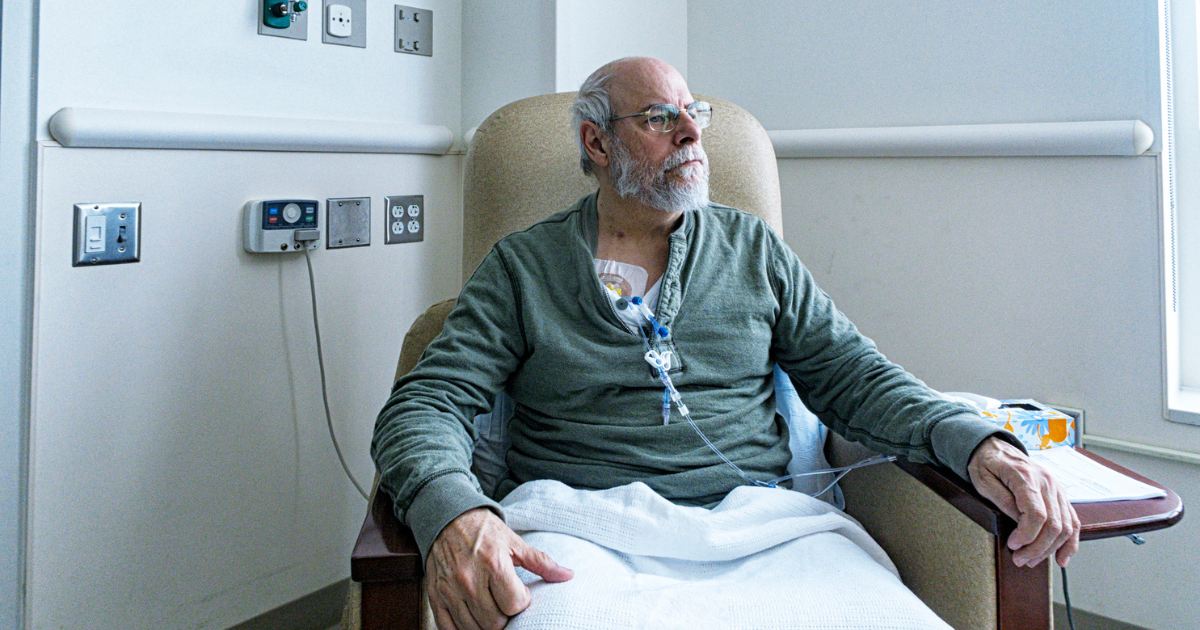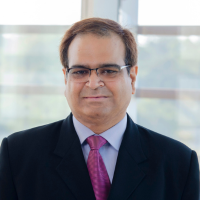Treatment advances in radiation therapy, surgical oncology and medical oncology

Radiation Therapy
Intraocular melanoma is the most common primary eye cancer in adults. A customized treatment reporting a 95% success rate is now available at Nebraska Medical Center, the only hospital in Nebraska offering this innovative therapy.

“Radiation plaque therapy has improved greatly over the last few years, and in most cases, eliminates the need to remove the eye,” says Pukhraj Rishi, MBBS, Nebraska Medicine ocular ophthalmologist, who performs the surgery.
The therapy involves implanting a small plaque customized to fit the shape of each patient’s eye. A predetermined amount of radiation seeds are placed into the plaque based on the patient’s tumor type. The plaque is fabricated in gold, which helps deliver the radiation directly to the tumor and minimizes damage to surrounding tissues. The plaque is removed after one week. As the cancer cells die, the tumor shrinks and becomes inactive.
“Patients may have some discomfort for a few days and require four to six weeks for full recovery,” says Dr. Rishi. “This type of cancer can spread to the liver, so the patient will need continued surveillance over their lifetime.”
“The ability to customize the plaque with 3D technology has revolutionized this procedure,” adds Dr. Rishi. “Unless the tumor is located near the center of the retina or the optic nerve, most patients experience limited vision loss.”
Surgical Oncology
A new radiofrequency ablation procedure that may eliminate the need for surgery for the treatment of benign thyroid nodules is now available at Nebraska Medical Center.

“This procedure has revolutionized the treatment of thyroid nodules,” says Abbey Fingeret, MD, Nebraska Medicine oncology surgeon. Nebraska Medical Center is the only hospital in Nebraska and the Midwest to offer this innovative procedure.
Radiofrequency ablation involves placing an electrode directly into the nodule. This creates injury to the nodule from the inside while minimizing damage to the normal thyroid tissue.
“Patients experience a 70% to 90% reduction in nodule volume within one year of treatment,” says Dr. Fingeret.
Before this procedure, patients required surgery to remove the nodule and the surrounding normal thyroid.
“After surgery, up to 30% will require lifelong medication to replace the role of the thyroid,” notes Dr. Fingeret. “There is also a 1% to 2% risk of voice change with surgery, which drops to 0.1% with radiofrequency ablation.”
Because the thyroid nodule is not removed during radiofrequency ablation, excluding cancer with a biopsy is necessary. Nodules where cancer is identified are still recommended for surgical removal.
Medical Oncology
The Pancreatic Diseases Specialty Clinic offers a unique approach to caring for individuals with pancreatic cancer or precancerous lesions.

The weekly gathering brings together a team of experts who collaborate on treatment plans tailored for each patient. Medical, surgical and radiation oncologists, gastroenterologists, pathologists, radiologists, nurses, dietitians, genetic counselors, social workers and palliative and pastoral care providers work collectively to improve patient outcomes.
After the team discusses each patient, one of the physicians immediately meets with the patient and their family.
“It has been great for patients because we see them within a week of getting the referral, and they walk away with a comprehensive plan from the team of specialists,” says medical oncologist Kelsey Klute, MD. “This is an overwhelming, stressful time for them. This clinic allows them to avoid seeing multiple specialists over several days or weeks, and having some of the coordination taken out of their hands makes a huge difference.”
The clinic also allows patients to learn about opportunities to participate in research studies that may offer new breakthroughs in treatment. Additionally, patients are offered genetic testing, which can guide treatment decisions and impact family members who may be at risk for developing inherited conditions.







